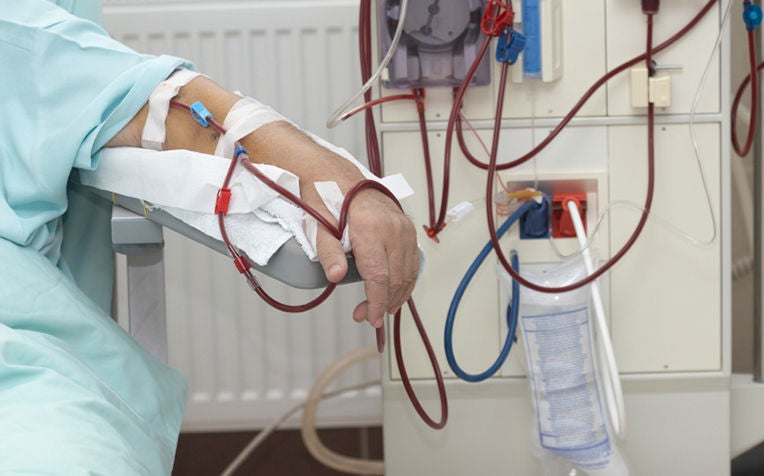
Kidney dialysis is key to survival for end-stage kidney disease and kidney failure patients.
Short of a kidney transplant, kidney dialysis is the only way to sustain life if you have end-stage kidney disease or irreversible kidney failure, a condition in which the kidneys have lost all or nearly all of their functions.
“Kidney dialysis is an artificial way to remove waste, excess fluids and toxins from your blood when the kidneys have failed. If these harmful substances are not removed, the resulting build-up can be fatal,” says Associate Professor Terence Kee, Senior Consultant, Department of Renal Medicine, Singapore General Hospital (SGH), a member of the SingHealth group.
Causes of irreversible kidney failure
There are several causes of irreversible kidney failure and the need for kidney dialysis.
Uncontrolled diabetes and high blood pressure can lead to chronic kidney disease or renal failure developing over time. Treating the underlying medical conditions is critical to prevent a fast progression to end-stage kidney disease.
Sometimes, severe blood loss due to major surgery or injury, or a kidney infection or inflammation may cause kidney failure to occur suddenly, usually within a few hours or days.
Though this form of acute kidney failure is generally reversible, it can progress to irreversible kidney failure if the underlying causes are not treated quickly.
What happens during kidney dialysis
In end-stage kidney disease, a person typically needs kidney dialysis about three times a week. Each session lasts three to five hours.
During kidney dialysis, blood is pumped from an access point in the arm, into the kidney dialyzer (also called “artificial kidney”) and kidney dialysis machine.
The dialysis equipment removes the waste, excess fluids and toxins from the blood before returning the cleansed blood into the body. This procedure, known as hemodialysis, is the most common.
Peritoneal dialysis is another form of kidney dialysis where blood filtering is done inside the body through a catheter inserted into the abdominal lining.
Symptoms of kidney dialysis
Kidney dialysis is painless, but you may experience some discomfort during or after the dialysis, including:
- Nausea and vomiting
- Headaches
- Abdominal and muscle cramps
- Fatigue and insomnia
- Itching
- Low blood pressure
- Feelings of depression
Some physical symptoms may go away after a few sessions. However, do talk to your caregiver or counsellor if you feel emotionally drained or depressed.
Possible kidney dialysis complications
Preventing bacterial infections is important to ensure the dialysis goes on smoothly.
Signs of infection may include fever, chills, abdominal pain, diarrhoea, nausea, redness, swelling and tenderness.
If you have end-stage kidney disease, you will need kidney dialysis for as long as you live unless you are a candidate for a kidney transplant and a suitable donor is found.
Ref: S13
Check out other articles on kidney health:
Kidney Failure: Causes, Symptoms and Prevention Tips
Glomerulonephritis: A Leading Cause of Kidney Disease
Kidney Cancer: How It Is Diagnosed and Treated
Link Between Red Meat and Kidney Failure
Kidney Stones: Causes and Common Symptoms
Kidney Failure in Singapore: Quick Facts
Contributed by


















 Get it on Google Play
Get it on Google Play